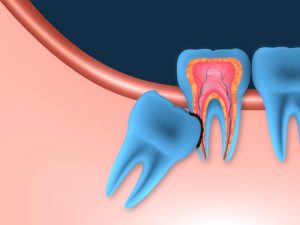 The ability to administer the full scope of anesthesia to patients is not something every dental professional is qualified to do. While general dentists can provide patients in Naperville with comfort using a local anesthetic or nitrous oxide, oral surgeons are required to complete at least 3 months of hospital-based anesthesia training so they can administer general anesthesia in-office for more complex surgical procedures. Once an oral surgeon is certified to provide this degree of anesthesia, they must continue their education in order to maintain their license every 2 years.
The ability to administer the full scope of anesthesia to patients is not something every dental professional is qualified to do. While general dentists can provide patients in Naperville with comfort using a local anesthetic or nitrous oxide, oral surgeons are required to complete at least 3 months of hospital-based anesthesia training so they can administer general anesthesia in-office for more complex surgical procedures. Once an oral surgeon is certified to provide this degree of anesthesia, they must continue their education in order to maintain their license every 2 years.
At Oral and Facial Surgery of Naperville, Drs. Jandali and Hur practice the full scope of oral and maxillofacial surgical procedures using a complete range of anesthetic techniques. When it comes to administering anesthesia of any kind, their top priority is the comfort and safety of each individual patient. Depending on the type of procedure you require, our oral surgeons may recommend any of the following types of anesthesia:
Local Anesthesia
When a local anesthetic is used, the patient will remain totally conscious throughout the procedure. To administer this medication, an oral surgeon will inject it directly into the area to be treated. It’s most often used for minor procedures relating to the soft tissues of the mouth, or for simple tooth extractions. Because local anesthesia does not affect your consciousness, you will be able to drive after your procedure.
Nitrous Oxide Sedation with Local Anesthetic
Oftentimes, an oral surgeon will choose to use nitrous oxide sedation in conjunction with local anesthetic in order to make their patient more comfortable. Nitrous oxide, which is more commonly known as laughing gas, is administered through a mask that covers both the patient’s nose and mouth. As with local anesthesia, you will remain fully conscious, but relaxed, as nitrous oxide has a sedative and pain-controlling effect. Oral surgeons like Drs. Jandali and Hur use this anesthesia combination for simple procedures or more involved procedures such as wisdom teeth removal or placement of dental implants.
Office-Based General Anesthesia with Local Anesthetic
As an oral surgeon, Drs. Jandali and Hur understand each type of anesthesia well, which means they knows which one should be used for each type of surgery. If they recommend office-based general anesthesia with a local anesthetic, it may be because your surgical procedure is more involved. They also may suggest it simply to help ease your anxiety about your surgery.
To administer general anesthesia, an oral surgeon will insert an IV into your arm or hand, through which medications such as Fentanyl, Versed, Ketamine, and Diprivan will be injected. General anesthesia is meant to put you completely asleep, so you will be unaware of your procedure, during which, your oral surgeon will monitor your vitals and supply you with oxygen using a face mask.
Most patients choose general anesthesia if they have wisdom teeth removal, dental implants placed, or they are undergoing oral or maxillofacial reconstruction.
If You Need an Oral Surgeon, Choose Us
If you know you are in need of an oral or maxillofacial surgical procedure, Drs. Jandali and Hur will take time during your initial consultation to fully explain your anesthetic options. If you have any questions or concerns about the type of anesthesia recommended for your procedure, do not hesitate to discuss your concerns with them. To schedule your initial consultation, call Oral and Facial Surgery of Naperville today at (630) 961-5151.








